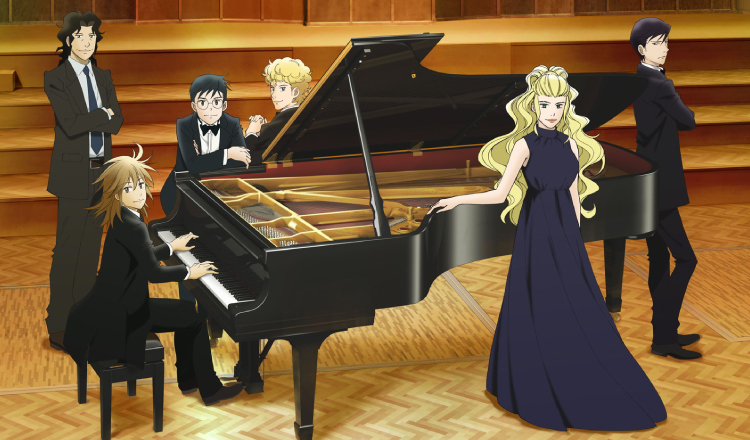

She, too, is a partially-completed puzzle as an artist – like Shuuhei and Kai, she has to become a complete pianist before she can seriously contend for greatness.Protagonist Kousei Arima is a piano playing progeny as he grew up is mother pressured him to play every note perfectly. There’s never really any question who’s going to win here, but Takako does net herself an honorable mention award (thanks to the snarky judge). Fittingly she plays with inspiration but flubs the difficult bits, while Shuuhei (very much in character) delivers a performance that’s “beyond perfect”. That competition (two of Chopin’s most beautiful short pieces) essentially boils down to two relevant pianists with Kai out of the picture – Shuu and Takako-san, who’s decided that she has Wendy’s spirit guiding her hands as his official proxy in the finals. That will have to wait of course, as he’s not part of the finals – and to boot, his forest piano has decided it no longer wants to play for him. Kai is forever changed by his friendship with Shuuhei – not only does he long to play the piano now, but he’s heard the roar of applause and can’t get it out of his system. But a part of Shuuhei is relieved that he’ll no longer have to have Kai’s presence remind him of his own self-perceived shortcomings every day. He and Kai are obviously close, and there’s genuine sadness for both of them – Kai, especially, has never had a friend like this before. Sadly, that advice from Ajino-sensei was parting advice, as Shuuhei is moving back to Tokyo. It’s not an either-or proposition – merely a near-impossibility to find anyone who has both skill sets inside them. The fact is that the truly great pianists – Lupu, Solokov, Lipati, Rubinstein at al – are mostly equal parts Kai and Shuuhei. He’s a remarkable talent and he needs to glory in that more – in the process hopefully liberating the part of him that will allow him to express joy through the piano. There are very few people indeed – never mind 11-year olds – who can do what Shuu does. Perhaps Ajino finally redeems himself a bit by giving Shuuhei some good advice – learn to love your own playing more. Ajino has, frankly, been a total dick to Shuuhei as far as I’m concerned – not just refusing to teach him (that’s his right) but refusing even to acknowledge him as an artist. Well – metaphorically speaking, isn’t that something almost all of us have gone through at some point? That’s why I found Shuu’s conversation with Ajino-sensei to be really powerful.

#Anime about piano prodigy how to
He’s the one with the quest – he knows how to play anything and everything, but not how to express himself while doing so. Shuuhei, by contrast, is someone I find much more sympathetic.

He’s already effectively God’s hand on the piano keys (even Shuuhei acknowledges this) and his quest to be recognized is all well and good, but Kai is pretty much where he wants to be artistically. “talent” – which the snarky competition judge does this week – but Kai’s status as a natural-born genius is a bit stagnant in character terms. I don’t know if I would call it “prodigy” vs. Kai is the hero of this series, but I think Shuuhei is the more compelling protagonist. I would probably be in the minority in stating that I actually find Shuuhei to be the more interesting character between the two leads. Piano no Mori is doing an awful lot of things well, and in the end I guess that has to be its own reward. I don’t get as upset by this sort of thing as I used to, but it’s still a bit of a downer. This show continues to toil in almost complete anonymity, which I suppose is fitting in the sense that Fukushima Gainax is doing the same thing generally. In a world where good anime are frequently ignored and underrated because or what they lack in terms of commercial pandering, Piano no Mori takes it to another level.


 0 kommentar(er)
0 kommentar(er)
